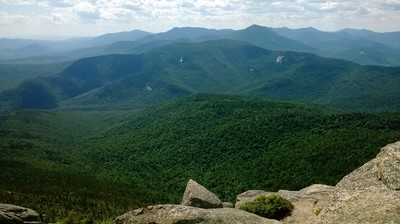|
A while ago I read Them, the thought-provoking 2018 book by Senator Ben Sasse. It is a book on political polarization in the United States. The main point seems to be that our policy differences are only part of what makes us who we are and that too many of us have allowed party to become dominant, pushing away those in the other party without even listening to them. People support parties the way they support sports teams. Furthermore, voices in the media keep us divided on purpose because outrage is big business. It sells ad time. They will also seek out the rare nut on the fringe to represent a whole group, giving false impressions.
Sasse claims that all this partisanship is just a symptom of a deeper problem: We are so lonely we can’t think straight. Normal human relationships are so strained and people are so desperate to belong to something that they will join groups defined only by being against other groups. They are bound not by love, but by shared hate. Sasse claims that to feel whole, people must be connected to other people, must be rooted to a place, and must have meaningful work. All of these things are being changed and disrupted by the digital revolution. People move much more often than they used to, losing all feeling of allegiance to a place and sometimes losing any friends they made. Because they know they might move again – and because anybody else might move – they don’t even put in the effort to forge permanent friendships. People become expendable. With the ubiquity of smartphones, people are easily distracted. The moment an interaction turns a bit boring, people withdraw into the digital world. They may be connecting with others in cyberspace, but this is superficial and ultimately unsatisfying. No effort is put in to maintain a conversation because so many other conversations are waiting to be had almost immediately. Because of the demands and luxuries of the modern world, our brains are being trained to have shorter attention spans and poorer memories. There is even a phenomenon called pornography-induced erectile dysfunction, meaning that some men have become so acclimated to easy pornography that they can no longer be aroused by real women. Note: Speaking from my experience, I am surprised how many people can’t go anywhere without a speaking GPS and how few people are able to give directions. They can’t even get from the workplace back home without them. I’ve never used the things. Whatever happened to maps? Sasse suggests several solutions. He says to invest in tough relationships, to have a home base to return to even if living elsewhere for a few years, and to create a small group of people that promise to keep contact no matter where life takes them. His group commits to meet once a year. Most importantly, join clubs or other groups that define the members as something other than political party. See people by their other roles in society than their party affiliation. The book is pretty good. It is well-written. The message seems to make sense, except of course that there is no point telling the individual all this when those around him/her haven’t read the book. I’ve always had trouble both making and keeping friends and many of my friendships stay very superficial. More importantly, politics can’t simply be swept under the rug. Just because someone might be an excellent biking partner, grocer, cobbler, cook, brother, or father in no way protects them from my wrath if I find out that they actually support a political party that terrorizes people into submission to their narrow, ill-informed vision of how life should be. Politics is simply war by other means. Because government is by definition the use of force – and because it involves itself in every aspect of human life, there is nothing more defining or revealing of someone’s heart than their political affiliation. Nothing is more important. Only religion – which deals with the next world as well as this one – could be argued to be more important. It is absolutely impossible to be friends with people that actually wish you harm. Sasse assumes that our current political climate is a symptom of our social problems, but I think that it is mostly the other way around; our social problems are a symptom of our current political climate. Maybe it’s both.
0 Comments
Leave a Reply. |
AuthorMy name is Dan. I am an author, artist, explorer, and contemplator of subjects large and small. Archives
February 2023
Categories
All
|



 RSS Feed
RSS Feed